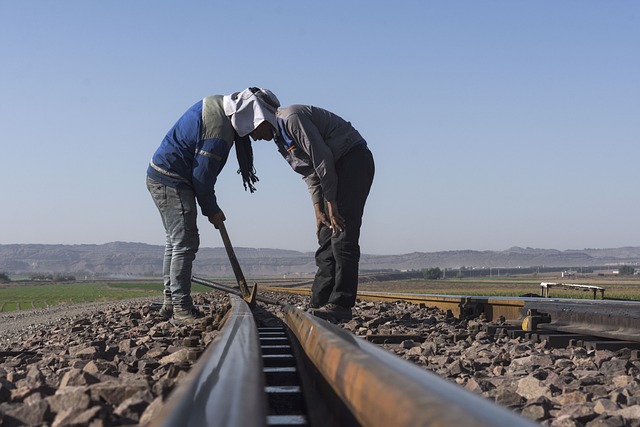
Occupational lung disease is a leading cause of illness in the United States. The good news is that these diseases are preventable with good industrial hygiene practices, including dust control measures, respiratory protection, air monitoring and worker education. The bad news is that oftentimes there is not any cure for occupational lung disease and it can result in severe disability.
There are many different types of occupational lung disease. Some of these lung diseases are more common and well-known (i.e.- chronic obstructive pulmonary disease, lung cancer and mesothelioma). Other occupational lung diseases are less well-known and include pulmonary fibrosis, chronic hypersensitivity pneumonitis, and asbestosis to name a few.
Long-time railroad workers are at increased risk of developing occupational lung disease due to their exposure to different dusts and fumes in the workplace, including asbestos, silica dust, ballast dust, diesel exhaust fumes, coal dust, welding and cutting fumes, and many other dusts and fumes. While most railroads now provide respiratory protection to current employees, such respiratory protection was not always provided in the past. In addition, even the few railroad workers that were provided with paper dust masks later learned that those masks were not protective from the microscopic dusts and toxic fumes which are present in the railroad locomotives, rail yards, roundhouses and railroad repair shops. The fact that there is a long latency period (the time between any toxic exposures and the resulting lung disease) means that railroad workers who were exposed to these dusts and fumes many years ago will continue to develop lung disease into the future.
Despite the many advances in medicine, many occupational diseases are not completely curable and require significant treatment. Such treatment can include inhalers, supplemental oxygen, medications, or, in advanced cases, lung transplantation.
Our law firm has represented many railroad workers who have undergone lung transplant surgery. It is important to realize that not everyone is a candidate for a lung transplant. For instance, many transplant centers will only consider someone for a transplant if (1) they are under a certain age which can vary by transplant center, (2) they are a non-smoker, (3) they maintain a certain healthy weight, and (4) they do not suffer from any other serious diseases or comorbidities. Once someone qualifies for a lung transplant, regardless of whether it is a single lung or double lung, they will be assigned a Lung Allocation Score (LAS) which will determine their position on the waiting list. The LAS is based on different factors including age, the type of lung disease, the severity of disease, and their current measured lung function. In addition, once a patient is placed on a lung transplant waiting list, they need to remain available and within a short drive to the transplant center in case a donor’s lung(s) become available. Lung transplant surgery is a major surgery and generally lasts at least 4 hours but can also stretch to over 10 hours. It is critical to understand that life after surgery can be physically and mentally challenging. Complications and possible organ rejection can result. The transplant patient can expect to be on anti-rejection medications. The road to recovery can be a long one and for that reason, it is necessary to have a strong support system at home to assist with the recovery process. On the positive side, a successful lung transplant can add many years of meaningful life for someone who otherwise would have a very limited life expectancy.
Railroad workers who have occupational lung disease as a result of their railroad exposures to dust and fumes may be entitled to compensation for their injury. Our law firm has handled occupational lung disease cases against many different railroads including:
- Amtrak
- Boston and Maine
- Burlington Northern
- Chicago and Northwestern
- Consolidated Rail Corporation (Conrail)
- CSX Transportation
- Erie Railroad
- Erie Lackawanna
- Missouri Pacific
- Missouri, Kansas and Texas
- New York Central
- Norfolk Southern
- Norfolk and Western
- Penn Central
- Southern
- Southern Pacific
- Union Pacific
- and many others.
Reach out to the experienced lawyers at Doran and Murphy so we can answer your questions about occupational lung disease and get you the compensation you are entitled to. Any claim that we bring will not affect your RRB benefits or health insurance. Call for help today.





